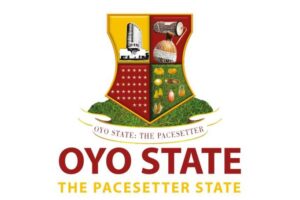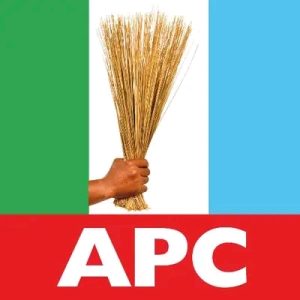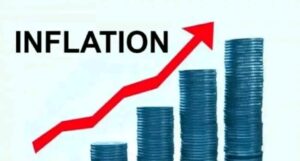By Dr. Bunmi Awoyemi
For much of the 3rd and 4th quarter of 2023 and 1st and 2nd quarter of 2024, Nigerians faced crushing food prices. Market after market, the story was the same: rice, maize, millet, and other staples soared beyond the reach of the average household. A 50kg bag of rice—the most consumed staple—hit between ₦100,000 and ₦130,000, up from ₦65,000 just a year earlier.
The media focused on inflation, subsidy removal, and the naira’s volatility. But underneath the surface, another powerful force was at work: a silent, well-organized grain cartel exploiting Nigeria’s policy environment to engineer artificial scarcity. These hoarders weren’t just holding grains—they were holding the country hostage. And it took one smart, calculated move from President Bola Ahmed Tinubu to break them.
The Hoarders’ Playbook
The hoarding syndicate had a simple but cunning model. They bought up huge quantities of locally produced grains—especially paddy rice, which is the raw, unprocessed form of rice—and locked them in warehouses across the country. This wasn’t speculative hoarding. This was a deliberate, well-funded business plan. Investors were brought in. Storage facilities were rented or built. And the expectation was simple: with the federal government maintaining a ban on grain imports, prices would rise unchecked. The longer they held the supply, the more they could charge.

And it worked—at least for a while. With limited supply, rice mills struggled to get enough raw paddy to process. Many shut down or scaled back. Meanwhile, the hoarders slowly trickled out small quantities at exorbitant prices, raking in profits and watching prices skyrocket.
But their plan wasn’t just economic. It was political.
The cartel believed that sustained food inflation would pressure the Tinubu administration into reversing its reforms—especially the removal of fuel subsidies and the unification of the foreign exchange rate. They knew that public anger over high food prices could be weaponized. They were counting on hunger to break the government’s resolve. They miscalculated.
The President’s Response: A Quiet Masterstroke
While critics cried that nothing was being done, President Tinubu was quietly studying the root of the food crisis. And when the moment was right, he executed a targeted countermeasure that flipped the entire gameboard.
He approved massive import waivers for key food commodities—specifically grains and paddy rice. These waivers allowed licensed importers and processors to bring in massive quantities of raw food materials that were previously restricted. In one swift move, the government reopened the gates of supply, not through random imports, but through strategic channels that fed the local processing ecosystem.
Rice mills that had been struggling suddenly had access to raw paddy. Production resumed. Supply increased. And prices began to fall.
It didn’t take long. Within weeks, the price of a 50kg bag of rice dropped by over 40%—from ₦110,000 to between ₦60,000 and ₦65,000 in many markets. Other grains followed suit. The monopoly was broken. The hoarded stockpiles lost value. Their stranglehold on the food supply chain collapsed.
And in a moment of deserved vindication, President Tinubu declared:
“They were hoarding food thinking that they can make us reverse subsidy removal and unification of FX, but we were undeterred. We are resolute! The hoarded foods are back in the market. Together, we have won them.”
The Bigger Picture: Policy Over Politics
What makes this moment so important is not just the drop in food prices—it’s the message it sends. For decades, vested interests have hijacked policy. Cartels and profiteers have operated with impunity, weaponizing scarcity and chaos for gain. What Tinubu demonstrated was that with clear strategy and political will, even the most entrenched networks can be dismantled.
He didn’t deploy soldiers. He didn’t shout on TV. He used the one tool they didn’t expect: policy intelligence.
By choosing to disrupt supply monopolies rather than throw money at the problem, Tinubu protected both the economy and the integrity of his reform agenda. He showed that reform doesn’t mean surrendering to pressure—it means making the hard decisions that produce long-term stability.
Why the Critics Will Never Acknowledge It
Yet, even in the face of this turnaround, critics continue to shout: “Tinubu has achieved nothing.” They ignore the rice price crash. They ignore the surge in mill productivity. They ignore the policy clarity. Why? Because many of them were either benefitting from the old system—or they are too blinded by political or ethnic bias to acknowledge real progress.
These are not objective observers. They are what some of us have begun calling Gullible, Hungry, Intentionally Ignorant Useful Idiots (GHIIUIs)—people who refuse to read, refuse to reason, and refuse to engage with facts. Their goal is not national progress. Their goal is to tear down a leader they never accepted, even before he was sworn in.
But while they rant, the market is responding. While they deny, food is returning to shelves. While they post propaganda, Nigerians are finally catching a breath after months of pressure.
A Lesson in Economic Leadership
This was a test of leadership—and Tinubu passed it. He didn’t panic. He didn’t flip-flop. He acted with precision. He broke the hoarders. He stabilized prices. And he protected his reforms from sabotage.
This victory matters not just for what it achieved, but for what it represents: that a Nigerian leader can govern with both backbone and brains. That reforms can work. That special interests can be defeated. That economic justice is possible—but only when the will to govern outweighs the fear of backlash.
So the next time someone says, “Tinubu has achieved nothing,” ask them to explain the crash in rice prices. Ask them to explain the reopening of mills. Ask them to explain why the grain cartels are suddenly quiet. And if they still refuse to acknowledge the facts, then you’ll know: this was never about truth.
It was always about denial.
By Dr. Bunmi Awoyemi








